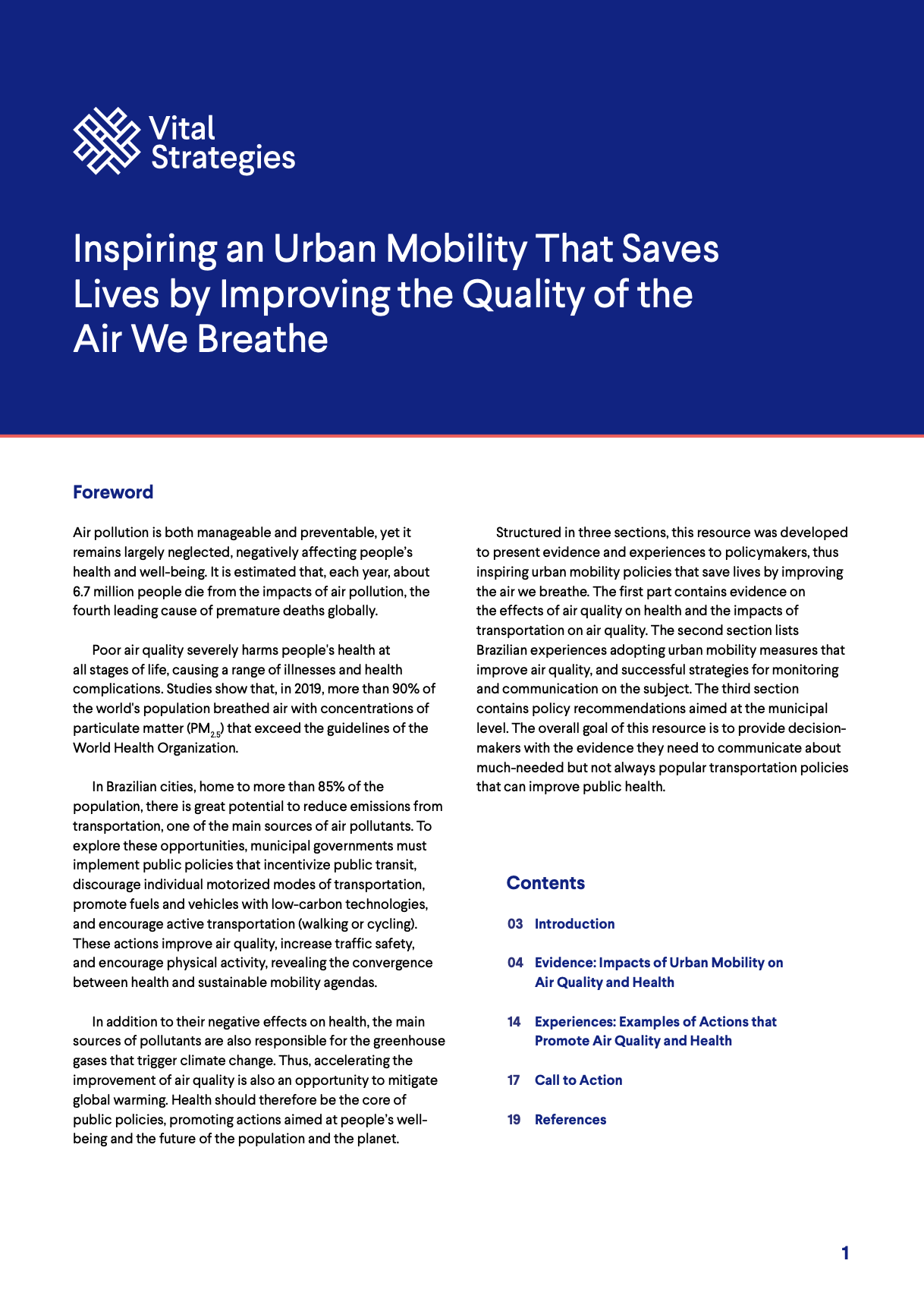Air pollution is both manageable and preventable, yet it remains largely neglected, negatively impacting the health and well-being of the population. It is estimated that, each year, about 6.7 million people die from the impacts of air pollution, the fourth leading cause of premature deaths globally.
In Brazilian cities, home to more than 85% of the population, there is great potential to reduce emissions from transportation, one of the main sources of air pollutants. To explore these opportunities, municipal governments must implement public policies that incentivize public transit, discourage individual motorized modes of transportation, promote fuels and vehicles with low-carbon technologies, and encourage active transportation (walking or cycling). These actions improve air quality, increase traffic safety, and encourage physical activity, revealing the convergence between health and sustainable mobility agendas.
This resource was developed to present evidence and experiences to policymakers, thus inspiring urban mobility policies that save lives by improving the air we breathe. The overall goal of this resource is to provide decision makers with the evidence they need to communicate about much-needed but not always popular transportation policies to improve public health.
Recent Abstracts
Opinión pública frente a la política de alcohol: Colombia
Public Attitudes Towards Alcohol Policy: Colombia
2024 Activity Report – Brazil
Estimação do impacto de diferentes cenários de redução do consumo de álcool no…
Estimation of the impact of various scenarios of reduction of alcohol use in…
Relatório de Atividades 2024 – Brasil
The Future of Health Financing in Africa: The Role of Health Taxes
RESET Alcohol Initiative Case Study: Media Campaign Resonates with the Public in Mexico
RESET Alcohol Initiative Case Study: A Historic Win for Alcohol Policy in Brazil
Effects of Heat on Early Childhood Development
